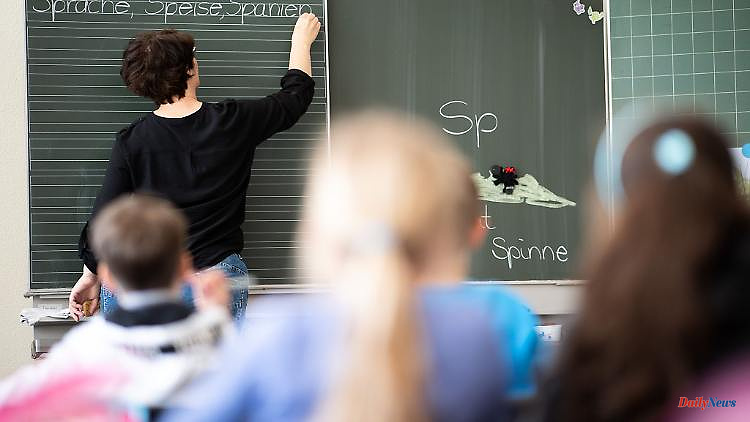Düsseldorf/Stuttgart (dpa/lnw) - According to a representative survey, teachers in North Rhine-Westphalia see their colleges as being under above-average stress in the third Corona school year. For the "German School Barometer" of the Robert Bosch Foundation, 56 percent of those surveyed in North Rhine-Westphalia rated the current workload of their entire teaching team as "very high". According to the Forsa survey published in Stuttgart on Thursday, the national average was 46 percent. In the country analysis, NRW had the highest value.
According to the survey, however, almost all teachers nationwide are on the verge of exhaustion in the third year of the pandemic. Almost nine out of ten teachers in Germany feel personally, or even very much, professionally strained. Most extend their work to the weekends and still mainly see gaping gaps in the learning and curriculum.
In NRW, a total of 85 percent of the teachers surveyed rated their personal workload as heavy or very heavy - slightly more than the national average (84 percent). About every second teacher in Germany feels physically (62 percent) or mentally exhausted (46 percent). Nevertheless, three out of four teachers surveyed said they were still satisfied with their job - in NRW at 67 percent, however, less than the national average (74 percent).
The traces of the corona burden are not only evident in the colleges. However, the proportion of their students with "significant learning deficits" is quantified very differently by the teachers. On average, 41 percent of all educators surveyed see clear learning deficits - in the state evaluation, NRW is again the highest here with 47 percent.
In addition, almost all teachers in Germany (95 percent) have observed increasing behavioral problems in their students since the beginning of the pandemic. According to the evaluation, many have growing problems concentrating or motivating themselves. The level of aggression among the students has also increased significantly.












